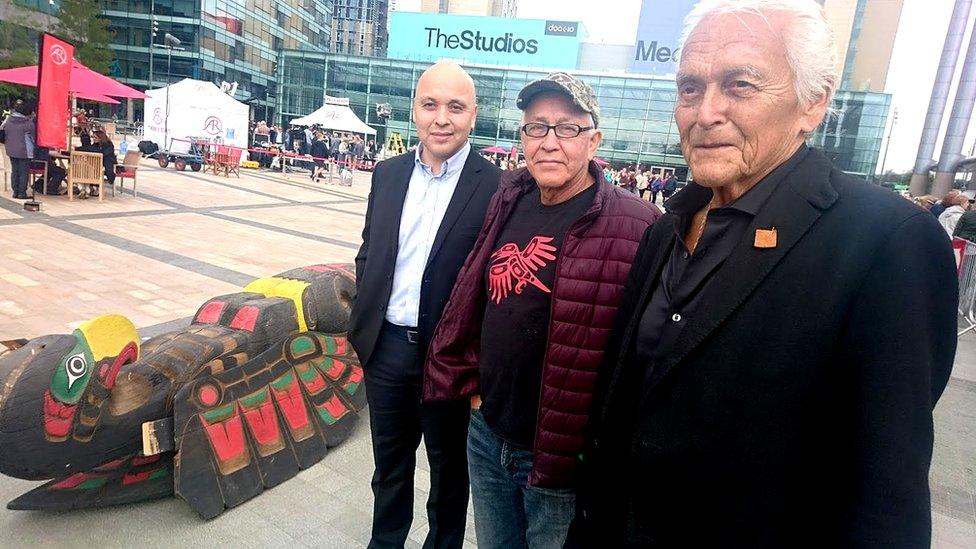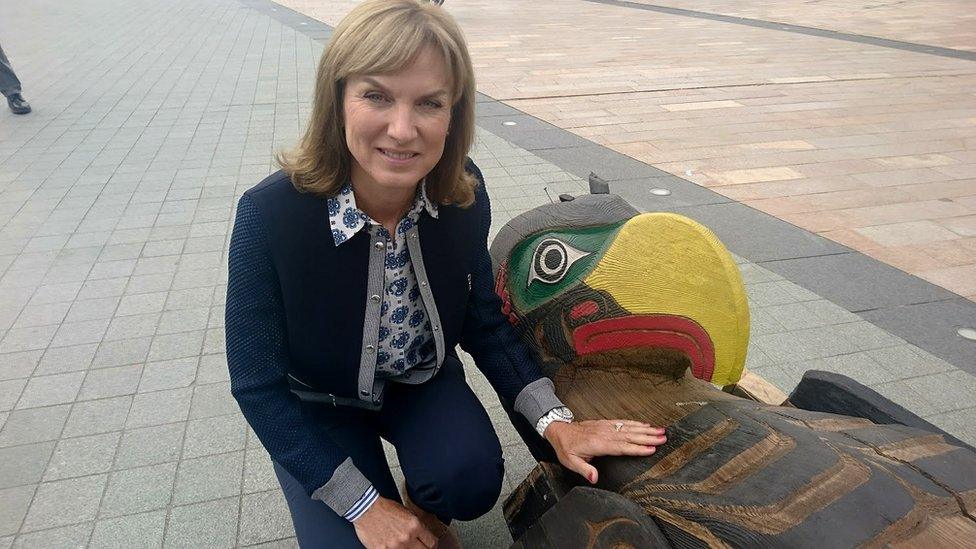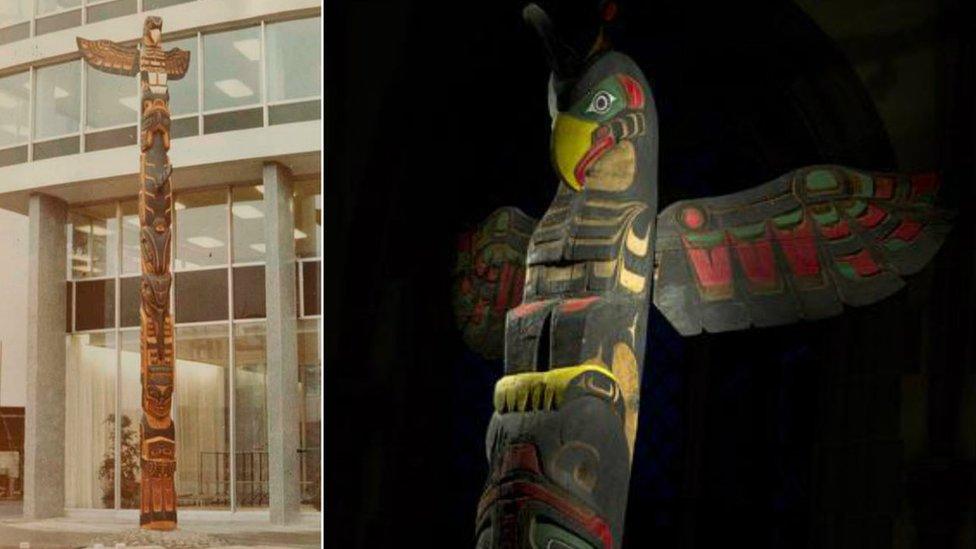Salford's totem pole to return to dockland home
- Published

Members of the Kwakwaka'wakw tribe will travel from Canada to restore the pole in Salford
An historic totem pole that was once stood in Salford Docks is to be restored and returned to its former site.
The 32ft (10m) pole was carved by native Americans and erected by the Manchester Liners company in 1969 to recognise the city's trade with Canada.
It was taken down in 2005 due to wood rot but will be re-sited after restoration funding was agreed.
The carved artefact is to feature on the BBC's Antiques Roadshow.
Housing developer Fortis Group said a restored pole would be included as part of a £150m plan to build 700 new homes on the original site.
Salford councillor Steve Coen, who has studied Salford's connections with north America, campaigned for 10 years to have the totem pole restored.
He said it was "fantastic" that funding had been secured.

The totem will feature on The Antiques Roadshow
"It has been complete synchronicity," he said.
"When they told me where they intend to place the totem pole, I said, 'you do realise that is the exact site where it once stood?' And they didn't."
Totem poles were created by many indigenous peoples of north America and were often used to record the history and legends of their tribe.
The Salford pole was carved by chief Doug Cranmer of the Kwakwaka'wakw tribe in 1969 to symbolise trade links between Canada and Salford.
His nephew Kevin Cranmer and another craftsman, Bruce Alfred, who trained under him, will perform the renovation work, replacing carvings that were destroyed when the pole was taken down.

Salford's native American connection
Legendary showman Buffalo Bill brought his Wild West Show to Salford in 1887 complete with 97 native Americans, 180 broncos and 18 buffalo
Members of the Sioux tribe in the show set up a camp on the banks of the River Irwell not far from present day MediaCity
There are descendants in Salford of at least one of the Sioux performers, known as Charging Thunder, who stayed behind after the show left town
A totem pole was carved by native Americans and erected in Salford to symbolise the city's trade links with Canada.

"In returning the pole to a prominent site in Salford, that ancestral presence in this distant land will once again become visible," said Kevin.
"It means a lot to us because it was carved about 10 years after the Canadian government tried to ban this kind of work," said chief Bill Cranmer, brother of Doug.
The artefact was ordered by Robert Stoker, then chairman of Manchester Liners, to be displayed at the company's Furness House headquarters.

The pole was taken down in 2005